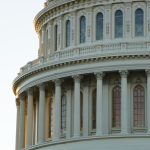The United States Postal Service continues its impressive streak of financial mismanagement, posting a staggering loss of $9.5 billion in fiscal year 2024. For those keeping score, that’s the cost of a small country’s budget blown on the art of shuffling paper around the nation. Audaciously, the USPS is expected to notch another $6.9 billion loss come fiscal year 2025. To the average taxpayer, those figures might sound like an elaborate scheme to raise cash for some dystopian comedy where mail carriers are actually trained clowns.
The real kicker here is that the Postal Service operates more like a government-run circus than a sensible business. While private companies are kicking into high gear to innovate and serve their customers, the USPS seems to stagger through its daily operations, powered by outdated practices and the undeniable strength of taxpayer dollars. The idea that a postal service in 2023 still relies on leaky funding and bureaucratic red tape makes one wonder if the only thing that should be dispatched is the whole system itself.
Enter the idea of privatization, a concept that some folks are kicking around like a campaign slogan at a county fair. A prominent writer, Charles Lane, poked at this notion in The Free Press, asking if privatizing the Postal Service could actually be a viable solution instead of throwing more money into this financial black hole. Imagine a world where your postal delivery is handled by a company that has to make smart decisions or risk going out of business. What a concept!
Time to privatize the US Postal Service, the leak double standard and other commentary https://t.co/d629be48fb
— Fredric U. Dicker (@fud31) March 30, 2025
Sure, the thought of privatization might raise a few eyebrows amongst the bureaucratic elite who thrive on a guaranteed paycheck regardless of performance, but it also presents the opportunity to reshape the postal landscape. Under private management, delivery services could focus on efficiency, transportation technology, and perhaps even deliver packages promptly instead of waiting three weeks for a birthday card to arrive. Who wouldn’t want to see their mail handled with the efficiency of a business that has to win over customers?
As it stands, taxpayers are nearly $10 billion poorer while the USPS keeps spinning its wheels. Maybe it’s time to let go of the government handcuffs and allow the free market to work its magic. After all, who knows what thrilling innovations could come about when the USPS finally trades in its worn-out model for some fresh ideas? It’s high time for the United States to ditch the postal plane and get on the express train to a more efficient mail system.




